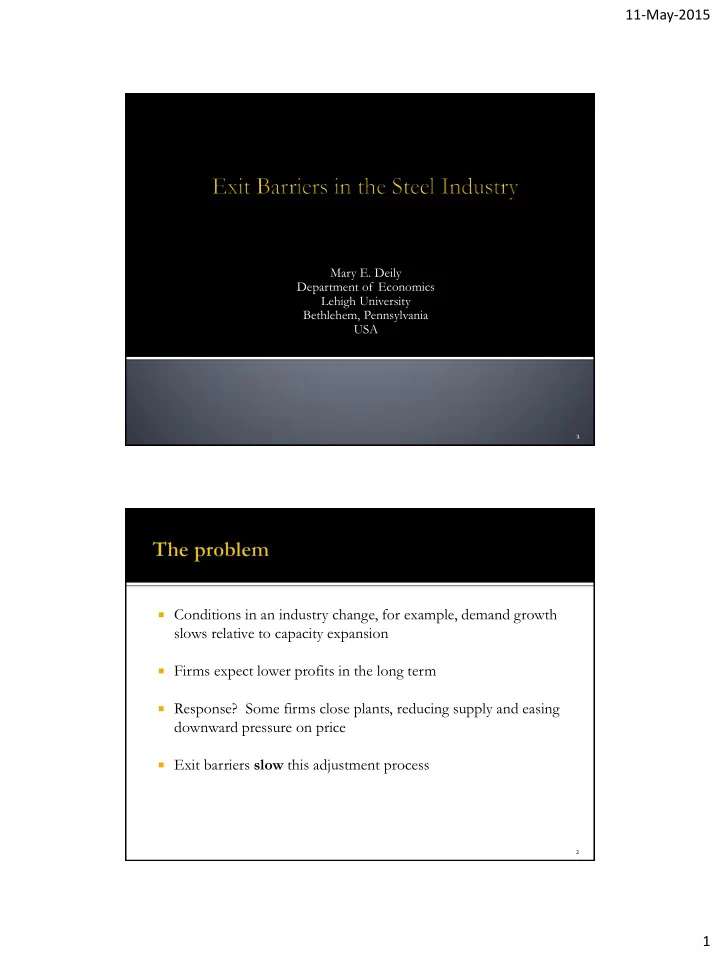

11-May-2015 Mary E. Deily Department of Economics Lehigh University Bethlehem, Pennsylvania USA 1 Conditions in an industry change, for example, demand growth slows relative to capacity expansion Firms expect lower profits in the long term Response? Some firms close plants, reducing supply and easing downward pressure on price Exit barriers slow this adjustment process 2 1
11-May-2015 Although profits may be low, a firm continues to operate a plant if the discounted value of expected sales minus operating costs exceeds the salvage value, that is, if ∞ 𝐸𝑗𝑡𝑑𝑝𝑣𝑜𝑢𝑓𝑒 𝑇𝑏𝑚𝑓𝑡 − 𝑝𝑞𝑓𝑠𝑏𝑢𝑗𝑜 𝑑𝑝𝑡𝑢𝑡 > 𝑇𝑏𝑚𝑤𝑏𝑓 𝑊𝑏𝑚𝑣𝑓 , 𝑢=0 Continue to operate plant Anything that increases the left hand side or decreases the right hand side will delay exit. Such things are called exit barriers. 3 The value of this flow will be reduced, hastening exit, if: Demand is stagnant (depressing price) Wages, materials, or energy costs rise Significant reinvestment required to continue operating equipment Costs associated with pollution control rise For steel firms? Trade protection slows exit Optimistic demand forecasts slow exit Durable plant and equipment slow exit 4 2
11-May-2015 Salvage value is determined by the disposal value of the assets minus plant-closing costs. A lower salvage value will delay exit. For steel firms? Salvage value is low because plant represents durable and specific capital with no alternative use ▪ Sell the plant ▪ Scrap the plant Salvage value low because plant-closing costs may be high ▪ Worker-related payments, e.g., severance pay ▪ Environmental remediation 5 Steel plants may be quite slow to close because expected net operating costs may exceed salvage value for a long time Slow capacity adjustment means lower profits will persist for other firms 6 3
11-May-2015 Pollution regulation vs. enforcement Weaker enforcement for financially distress plants slows exit Bankruptcy law Renegotiation of contracts during a bankruptcy may postpone a plant’s closing Availability of help for relocation/retraining 7 Distinguishing cyclical vs. secular changes is hard Steel-intensity of economic growth may change Alternative suppliers may appear ▪ Imports ▪ Minimills Forecasts made even in the late 1970s for U.S. demand in the 1980s were quite wrong 8 4
11-May-2015 Forecasting demand is difficult Integrated steel plants are a long-lived investment with no alternative use Pressure for trade protection will be strong Better to delay capacity expansions if at all possible 9 Thank you 10 5
Recommend
More recommend